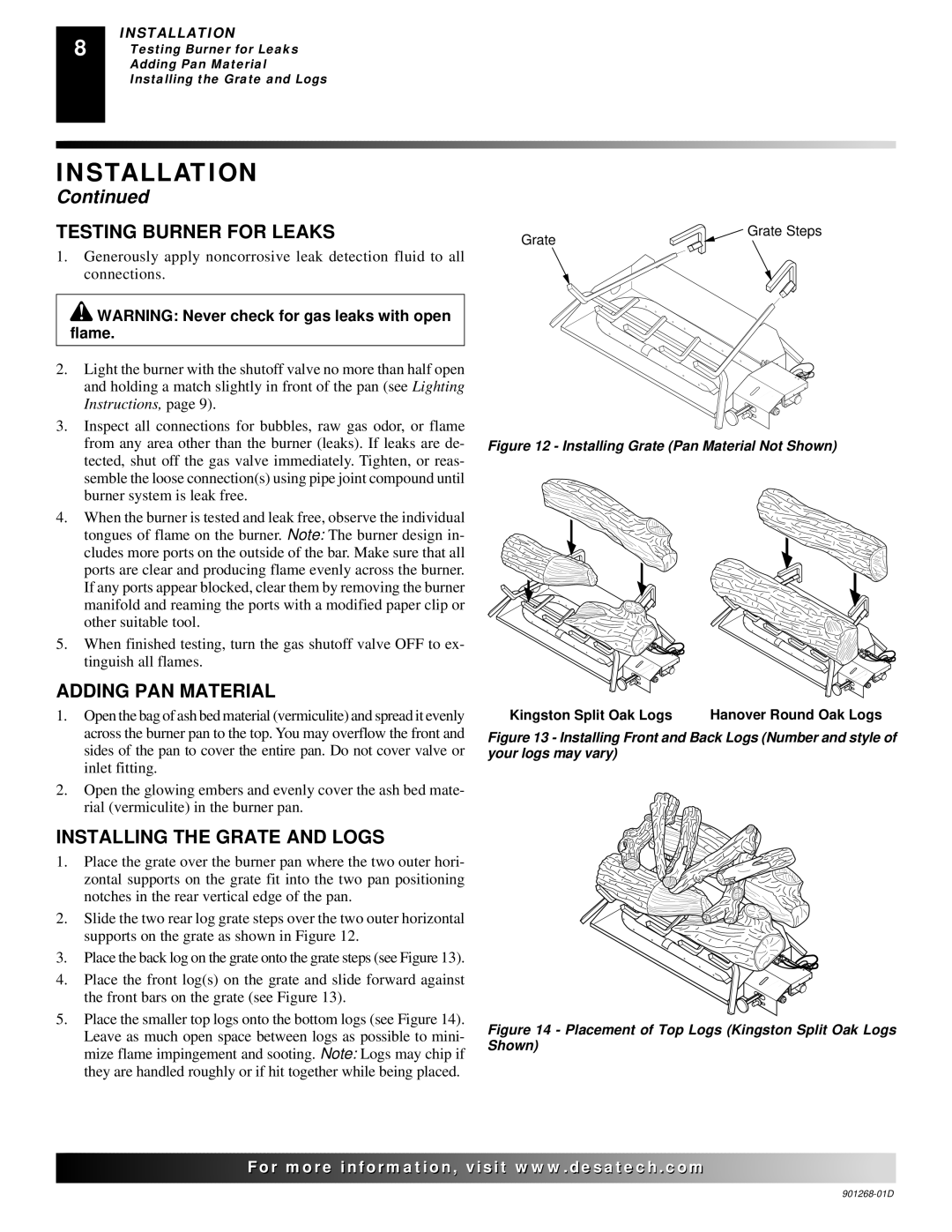FVSA24M, VSLR18, FVDA18M, VSLR24, FVDA24M specifications
Desa VVSA24M, VVSA18M, VVDA18M, VVDA24M, and VVDA30M are advanced heating solutions that combine efficiency, versatility, and user-friendly features. These models are popular among consumers looking for reliable heating systems for their homes or businesses.The Desa VVSA series, which includes the VVSA24M and VVSA18M models, is designed for high-performance utilization, making them ideal for medium to large spaces. These units utilize advanced radiant heating technology, which effectively warms up a room by emitting infrared heat, making them energy-efficient and environmentally friendly. The VVSA24M model offers a higher heat output, catering to larger areas, while the VVSA18M is suitable for smaller spaces, providing ample warmth without the added bulk.
On the other hand, the Desa VVDA series comprises the VVDA18M, VVDA24M, and VVDA30M models. This series is notable for its dual-fuel capability, allowing users to choose between propane and natural gas for fuel, enhancing flexibility depending on availability and cost. The VVDA variances cater to different heating needs, with the VVDA30M boasting the highest output, making it perfect for extensive commercial settings or sizable residential spaces. The VVDA18M and VVDA24M serve as excellent alternatives for smaller establishments, maintaining efficient heating performance while reducing energy consumption.
One of the standout features across all these models is the integrated electronic ignition system, which ensures a reliable start and enhances safety by eliminating the need for a continuous pilot light. Additionally, these units are equipped with advanced thermostat controls, allowing users to set their desired temperature accurately and maintain a consistent level of comfort throughout the space.
These Desa models also feature durable construction with high-quality materials, ensuring longevity and resistance to wear and tear. Their sleek designs mean they can fit seamlessly into various interior decors, making them not just functional but also aesthetically pleasing.
In summary, Desa VVSA24M, VVSA18M, VVDA18M, VVDA24M, and VVDA30M encompass a range of heating solutions that cater to diverse needs and preferences. With their innovative technologies, user-friendly features, and robustness, these units exemplify what modern heating systems should offer. They are not just about warmth; they bring comfort, efficiency, and flexibility to any space.

